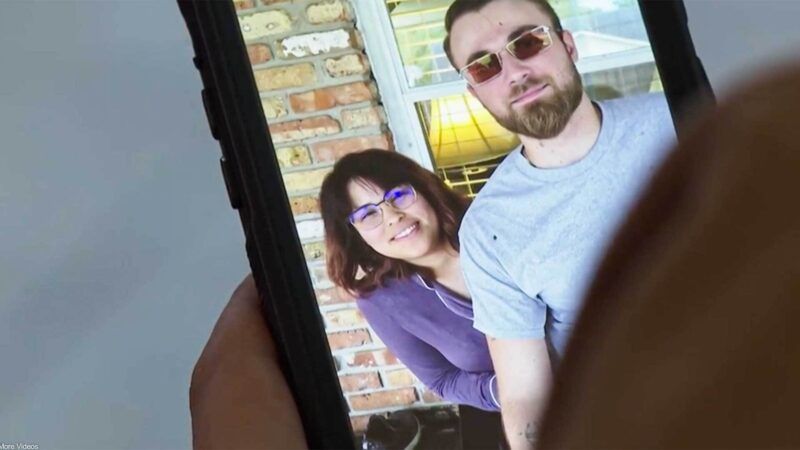Wife of Marine Corps Veteran Released After 2 Months in ICE Detention
Paola Clouatre had no previous convictions and was detained immediately following a green card interview.

Paola Clouatre, the wife of Marine Corps veteran Adrian Clouatre, was released on Monday after two months in Immigration and Customs Enforcement (ICE) detention, with the help of Sen. John Kennedy (R–La.). Cloutare's arrest is symbolic of President Donald Trump's immigration crackdown, which has mostly targeted people with no criminal record, despite his claim that he's deporting the "worst of the worst."
ICE initially detained Clouatre on May 27. After coming to the United States as a teenager with her mother to seek asylum over a decade ago, the 25-year-old began the green card application process shortly after marrying her husband last year. Clouatre was surprised to discover through the application process that ICE had issued a deportation order against her in 2018, stemming from her estranged mother's failure to appear at an immigration hearing in California.
During a recent green card appointment in New Orleans, Clouatre and her husband explained that she had requested that her case in California be reopened. In a video interview with the Associated Press, Adrian Clouatre said they were asked to wait in the lobby for paperwork after finishing the interview when ICE agents arrived with handcuffs and took Clouatre—a mother of two young children—into custody.
Like the other 65 percent of people taken by ICE this year to meet a quota of 3,000 arrests per day, Clouatre had no previous convictions. Yet, despite posing no threat to public safety—and having demonstrated her willingness to cooperate with the immigration court system—ICE chose to keep Clouatre in a detention facility in Monroe, Louisiana.
For two months, Adrian Clouatre made the eight-hour round trip each week from their home in Baton Rouge, Louisiana, to visit Clouatre in detention, bringing their 2-year-old son and 4-month-old breastfeeding baby. The two finally received confirmation that Clouatre would not be deported after an immigration judge in California stayed the order for her removal on July 23. But Clouatre was not immediately released from detention and was told by her lawyer that release could take weeks.
But Clouatre was home just five days later after Kennedy—a general supporter of Trump's immigration policies—reached out to the Department of Homeland Security (DHS), requesting her release. Reunited with her family, Clouatre is currently wearing an ankle monitor. It will likely take years to close Clouatre's immigration court proceedings and—eventually—obtain her green card, her attorney told the A.P.
Adrian Clouatre told the A.P. that rather than throw people into detention just for being undocumented, he wished ICE would "actually look at the circumstances" before detaining people. But ICE has not taken such an approach, and has detained a record high 56,816 immigrants as of July 13. The agency's efforts to meet the Trump administration's mass deportation goals have led to overcrowding issues and legal challenges over due process violations, such as denying bond hearing requests for detainees who pose no public safety threat.
But the rush to arrest, detain, and deport undocumented immigrants in the U.S. without proper procedure—or concern for the harm violations cause immigrants and Americans alike—may be backfiring. A recent poll conducted by The Economist and YouGov from July 11 to July 14 found that the majority of Americans (52 percent) believe Trump's approach to immigration has been "too harsh," and only 36 percent believe his approach is "about right." Respondents to a CBS News poll also made procedural objections to Trump's immigration tactics, including the belief that the administration is making too many mistakes by moving too quickly, that immigrants should be able to challenge deportation orders in court, and a disapproval of detainees being treated harshly in detention centers.
Clouatre was fortunate enough to request and receive the help of an elected official to lessen the burden of detention on her and her family; most ICE detainees won't be so lucky.


Show Comments (89)